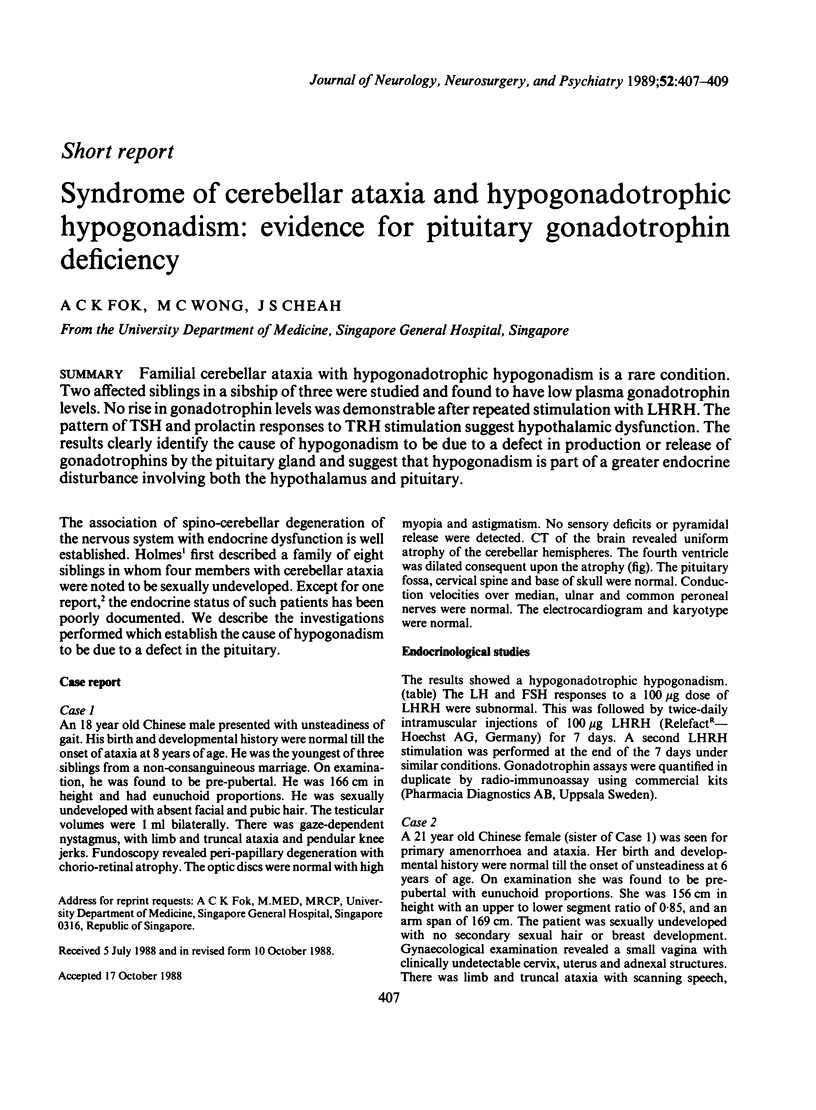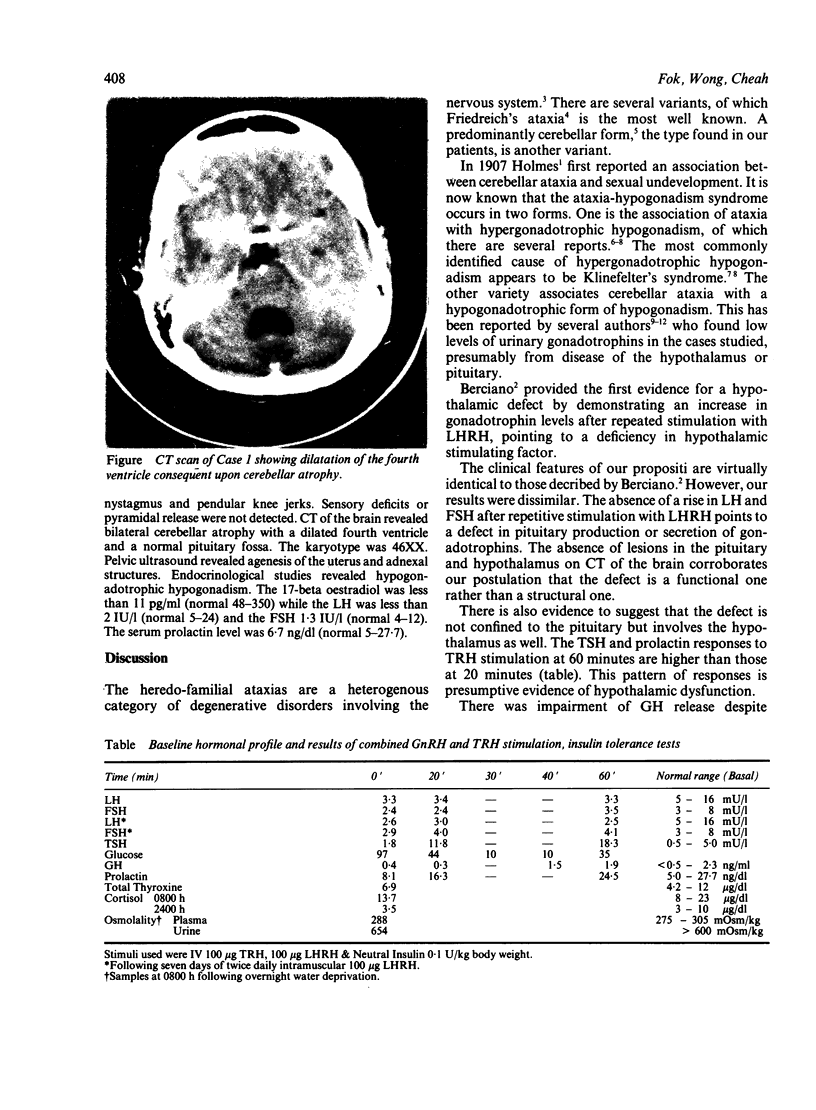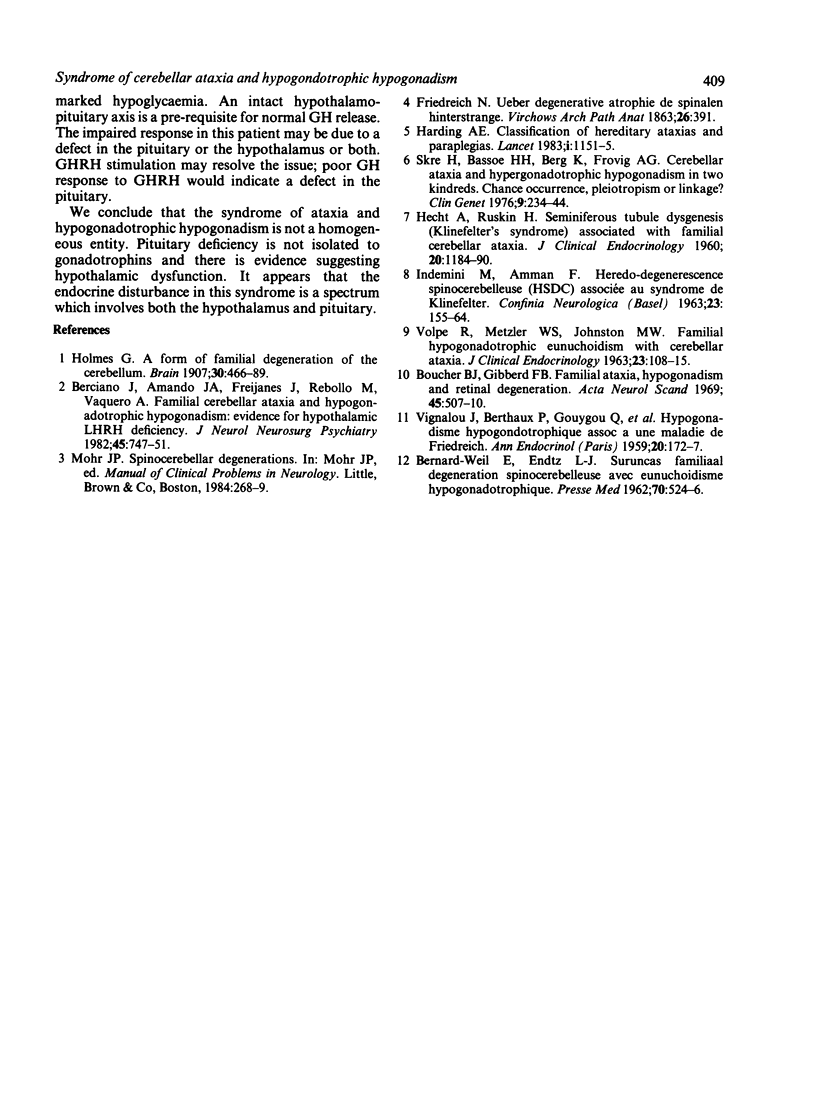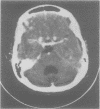Abstract
Familial cerebellar ataxia with hypogonadotrophic hypogonadism is a rare condition. Two affected siblings in a sibship of three were studied and found to have low plasma gonadotrophin levels. No rise in gonadotrophin levels was demonstrable after repeated stimulation with LHRH. The pattern of TSH and prolactin responses to TRH stimulation suggest hypothalamic dysfunction. The results clearly identify the cause of hypogonadism to be due to a defect in production or release of gonadotrophins by the pituitary gland and suggest that hypogonadism is part of a greater endocrine disturbance involving both the hypothalamus and pituitary.
Full text
PDF


Images in this article
Selected References
These references are in PubMed. This may not be the complete list of references from this article.
- Berciano J., Amado J. A., Freijanes J., Rebollo M., Vaquero A. Familial cerebellar ataxia and hypogonadotropic hypogonadism: evidence for hypothalamic LHRH deficiency. J Neurol Neurosurg Psychiatry. 1982 Aug;45(8):747–751. doi: 10.1136/jnnp.45.8.747. [DOI] [PMC free article] [PubMed] [Google Scholar]
- Boucher B. J., Gibberd F. B. Familial ataxia, hypogonadism and retinal degeneration. Acta Neurol Scand. 1969;45(4):507–510. [PubMed] [Google Scholar]
- HECHT A., RUSKIN H. Seminiferous tubule dysgenesis (Klinefelter's syndrome) associated with familiar cerebellar ataxia. J Clin Endocrinol Metab. 1960 Aug;20:1184–1190. doi: 10.1210/jcem-20-8-1184. [DOI] [PubMed] [Google Scholar]
- Harding A. E. Classification of the hereditary ataxias and paraplegias. Lancet. 1983 May 21;1(8334):1151–1155. doi: 10.1016/s0140-6736(83)92879-9. [DOI] [PubMed] [Google Scholar]
- Skre H., Bassöe H. H., Berg K., Frövig A. G. Cerebellar ataxia and hypergonadotropic hypogonadism in two kindreds. Chance concurrence, pleiotropism or linkage? Clin Genet. 1976 Feb;9(2):234–244. doi: 10.1111/j.1399-0004.1976.tb01570.x. [DOI] [PubMed] [Google Scholar]



